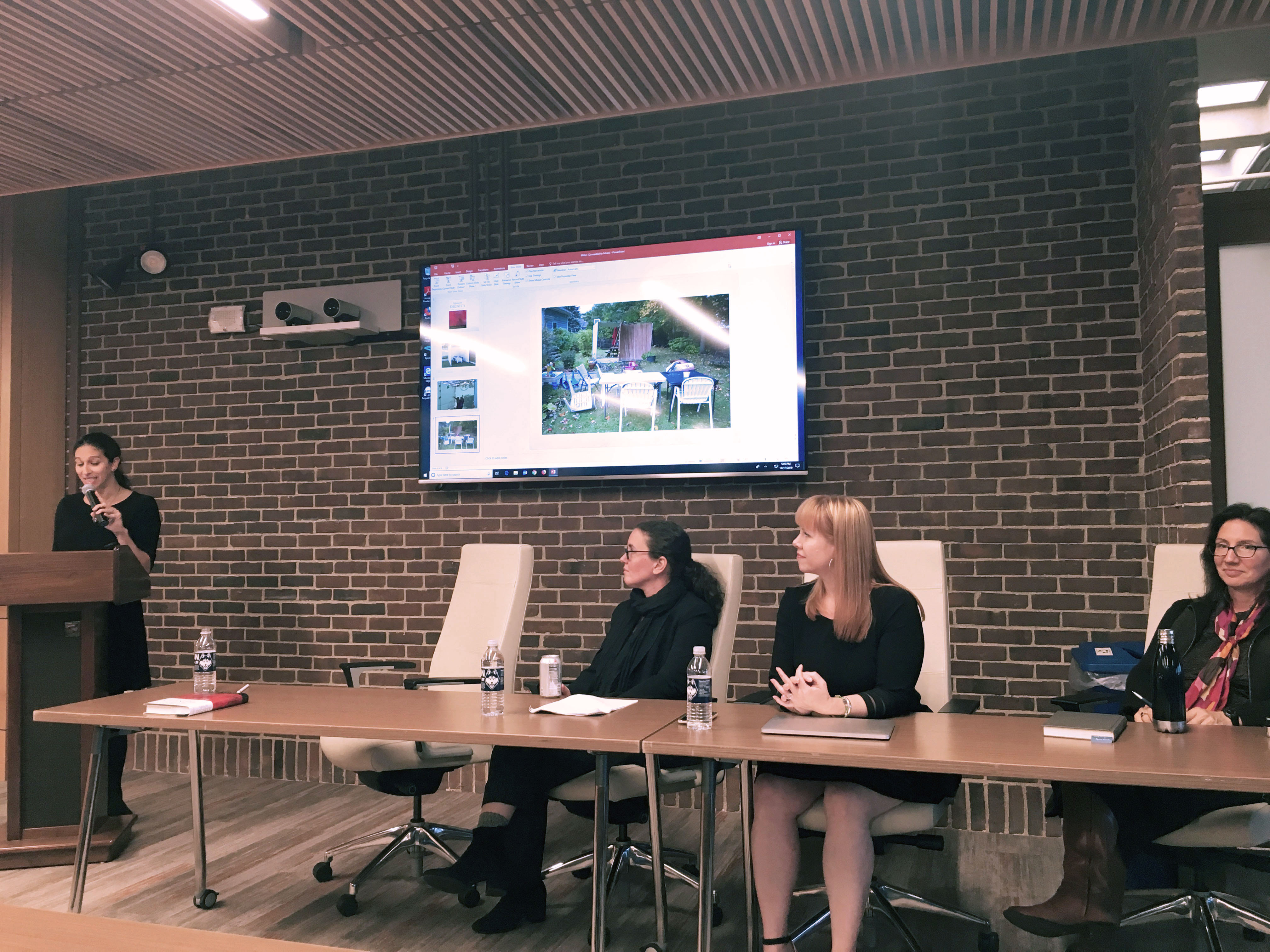 With her latest book published just this June, the panel discussion on October 17, 2019, presented and celebrated Fighting for Dignity: Migrant Lives at Israel’s Margins (UPenn, 2019) by Sarah Willen, Associate Professor for Anthropology at UConn. Her study examines the gerush, a deportation campaign by the Israeli government in 2002, and the effects on its subjects, non-Jewish migrant workers from the Philippines, Ghana, Columbia, and Ukraine. The panel discussion took place between the days of the Sukkot holiday, which centers around the very instability and precariousness of human existence and spaces for dwelling, as Willen remarked.
With her latest book published just this June, the panel discussion on October 17, 2019, presented and celebrated Fighting for Dignity: Migrant Lives at Israel’s Margins (UPenn, 2019) by Sarah Willen, Associate Professor for Anthropology at UConn. Her study examines the gerush, a deportation campaign by the Israeli government in 2002, and the effects on its subjects, non-Jewish migrant workers from the Philippines, Ghana, Columbia, and Ukraine. The panel discussion took place between the days of the Sukkot holiday, which centers around the very instability and precariousness of human existence and spaces for dwelling, as Willen remarked.
The event was sponsored by the Center for Judaic Studies and Contemporary Jewish Life, the UConn Human Rights Institute, and the Middle East Studies Program. Director Avinoam Patt (Judaic Studies) and Director Kathryn Libal (Human Rights) gave warm and personal notes of welcome and introduction. The three panelists who spoke before Willen included Tally Amir, a PhD sociologist from Harvard, Heide Castañeda, a PhD anthropologist from the University of South Florida, and Jennifer S. Hirsch, a professor for Sociomedical Sciences at Columbia. In her comments, Amir brought a Human Rights legal perspective to the panel, focusing on dignity in Israeli judicial activism. Castañeda reflected on the links between indignity and indignation, pointing to the parts of Willen’s book that feature the perspectives from Jewish Israeli activists, who organized solidarity and protest against the gerush. Hirsch used her position as Willen’s former teacher to laud her work, praising her book as “timely and timeless.” Hirsch further pondered on the freedom of the social sciences to address the pressing questions of our time and named Willen as an outstanding example of scholarly ambition and courage.

All the speakers highlighted the somehow surprising timeliness of the publication. Despite the research going back 18 years and the distant geographical context, Willen’s findings bear special relevance to and critical insight into the current American discourse on immigration. The author herself admitted that she could not have imagined the future priority of the matter when starting her research. In her concluding remarks, with support from Hannah Arendt, Willen linked her study to the universalist Jewish values that the different Israeli activists shared and pledged herself to anthropology’s goal to make “the strange familiar and the familiar strange.”